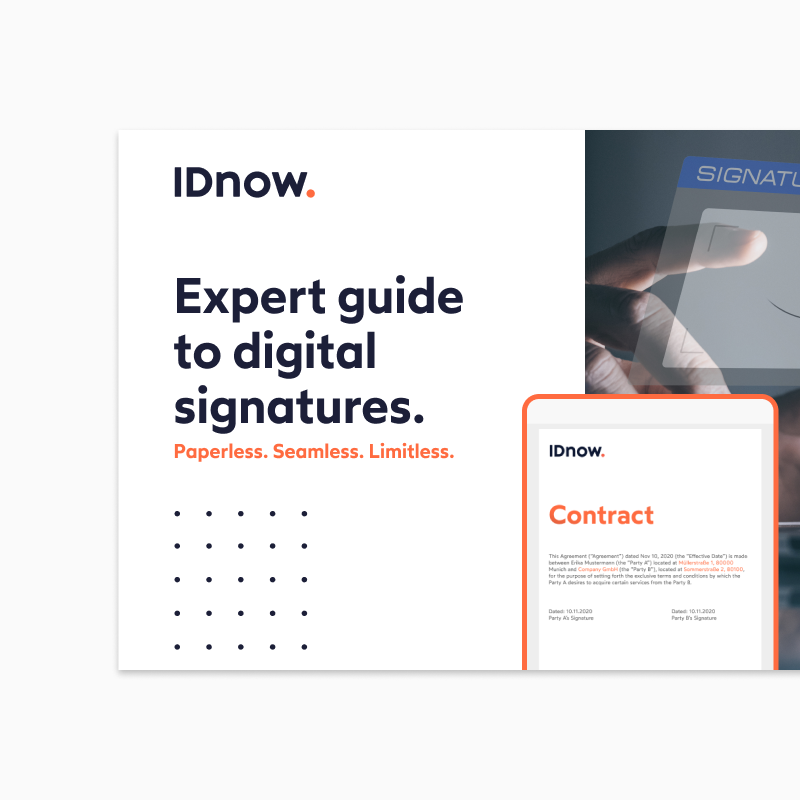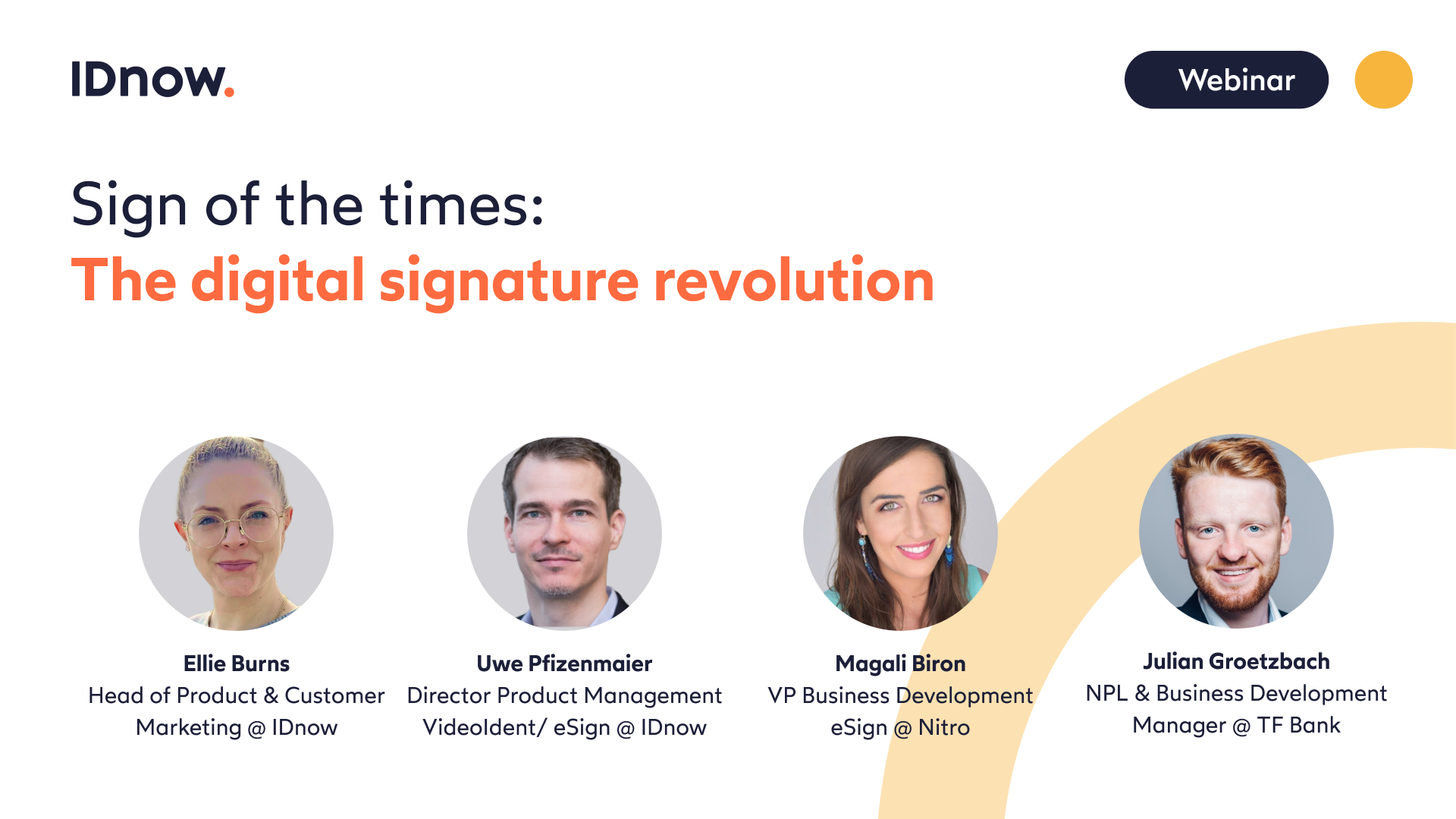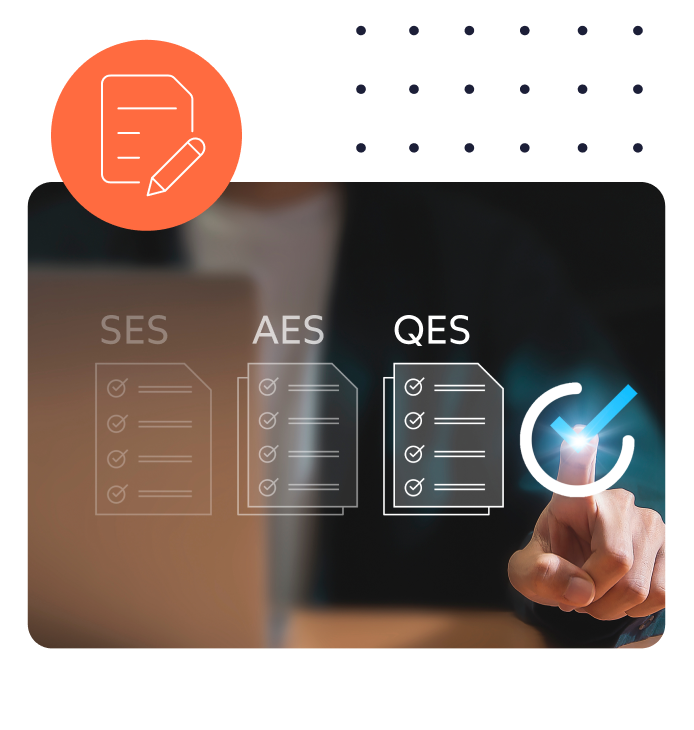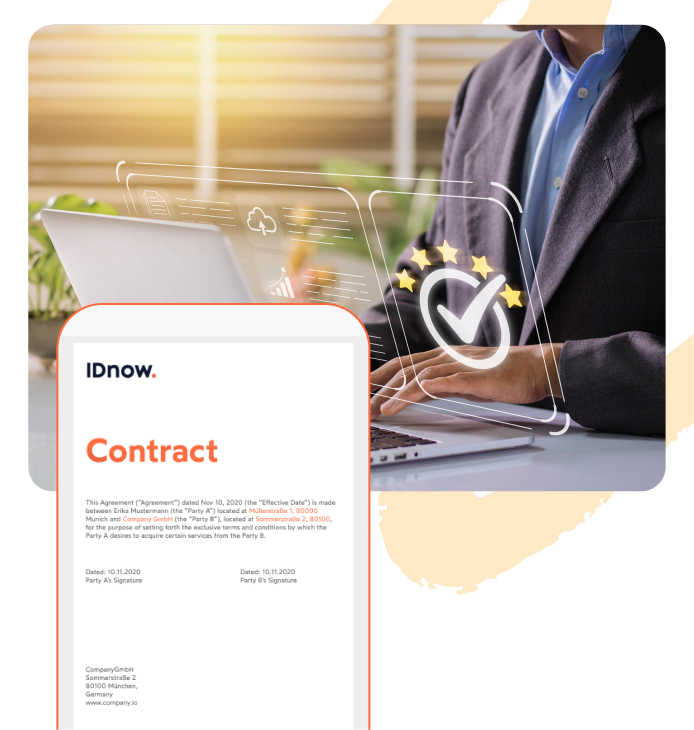Industry experts gathered to discuss the past, present and future of digital signatures and their ever-increasing role in financial services.
From Sumerian tablets to digital documents, signatures have been used for thousands of years as symbols of trust, proof of identity and indicators of agreement.
Nowadays, digital signatures do all the above and offer enhanced security and efficiency. Little wonder then that the European digital signature market is predicted to be 7x times larger by 2030.
To explore how digital signature solutions are changing the way we do business, we organized the ‘Sign of the times: The digital signature revolution’ webinar.
Moderated by Ellie Burns, Head of Product & Customer Marketing at IDnow, participants included Uwe Pfizenmaier, Director Product Management VideoIdent/eSign at IDnow, Magali Biron, VP Business Development eSign at Nitro and Julian Groetzbach, NPL & Business Development Manager at TF Bank.
Now available on-demand, the hour-long webinar covers a variety of topics, from the legal and regulatory landscape of digital signatures to how they can be used to boost conversions.
Missed the webinar? Here’s our five key takeaways!
1. Fraud is propelling the adoption of digital signatures.
There are three different types of digital signatures: Simple Electronic Signatures (SES), Advanced Electronic Signatures (AES) and Qualified Electronic Signatures (QES). As the least regulated, SES is mostly used for internal purposes, while AES and QES are regulated by the European-wide eIDAS standard.
Almost three quarters of European organizations still use a mixture of paper and electronic documents but increasing numbers of companies are making the digital switch. Up until last year, TF Bank was still using wet signatures to conclude contracts.
Recent increases in the adoption of digital signatures have been largely driven by the need to onboard more customers, increase conversions and reduce fraud. However, Uwe warned that:
The benefits of digital signatures, including enhanced trust, speed and security, alongside cost savings and a more sustainable method of concluding contracts, are only made possible through a robust identity verification process.
Uwe Pfizenmaier, Director Product Management VideoIdent/eSign at IDnow
Despite the obvious benefits, some customers are still hesitant to use digital signatures, which is why it’s important for businesses to reassure users that they’re safe and secure and offer improved convenience. IDnow’s InstantSign, for example, only requires users to onboard once.
Acceptance of new products and technologies can also depend on the maturity of the market, with countries including Germany still hesitant about adopting certain technology.
2. Regulation acting as major accelerator of usage.
Regulations can act as a major accelerator for digital signature adoption. Despite different national laws dictating specific requirements, which can make it difficult to scale and expand, regulations like Electronic Identification, Authentication and Trust Services (eIDAS) can serve to simplify the process.
Indeed, although compliance requirements may vary across countries, along with accepted types of identification documents, being able to offer as consistent a user experience is vital.
Contrary to popular belief, the goals of regulators, compliance bodies and businesses are more aligned than people may think. As such, it’s important to embrace solutions that address the needs and challenges of both sides. Integrating a digital signature QES solution can be a great example of this as it not only complies with regulations but also leads to better conversions.
3. Importance of trust in the digital economy.
In the ‘offline’ world, customs like shaking hands and looking one another in the eye go some way to establishing trust.
In financial services, trust is essential, regardless of whether online or off. If a financial institution loses the trust of its customers, it will have a knock-on effect on its reputation and bottom line. Companies must also trust their solution providers so they, in turn, can trust their customers and vice versa.
Trust is built by being open and offering a good user experience and accessibility, so people want to adopt the solution. That is the foundation of a successful trust process.
Uwe Pfizenmaier, Director Product Management VideoIdent/eSign at IDnow
As digital signatures deal with the exchange of personal data between businesses and users, companies need to treat the data with utmost care, while providing customers with the support they need.
Expert guide to digital signatures.
The different types of digital signatures
 Benefits of implementing a digital signature solution
Benefits of implementing a digital signature solution How IDnow can help unlock valuable business opportunities
How IDnow can help unlock valuable business opportunities

4. Impact of eIDAS 2.0 regulations in ushering in safer and more secure digital signatures.
eIDAS 2.0 will address weaknesses in the first iteration of eIDAS, offering better data protection and a more harmonized proof of identity. It will also likely usher in a new era of safer and more secure digital signatures.
The more forward-thinking financial services players should see new regulations, technology (e.g. artificial intelligence) and solutions (digital wallets) as opportunities to future-proof processes and ultimately increase conversions.
5. Future of digital signatures will be integration.
To thrive in an ever-changing market, businesses must be quick to adapt to new developments and integrate new technologies to optimize products and processes.
Implementing technologies like biometrics, machine learning, artificial intelligence and predictive analytics will improve trust and bolster security.
In markets such as Germany, eID will play a major role in the future of identification and digital signing, which will assist in the advancement of digital fingerprints. A huge shift is expected for digital identity as more countries prepare for the delivery of a digital ID. Therefore, it is important for companies to partner with solution providers like IDnow to onboard users and facilitate the conclusion of contracts in a user-friendly way.
However, as always, as companies experiment with technology and launch new processes like biometric checks and AI, they need to be mindful of new and even more inventive fraud attacks.
Learn more about digital identities in our blog “5 reasons why digital identities will revolutionize business in 2025 and beyond.”
To learn more about IDnow Trust Services AB and how it will revolutionize the digital signature market by offering greater legal certainty and higher security for electronic transactions, read our interview with Chief Executive Officer of IDnow Trust Services AB, Johannes Leser and Registration Officer of IDnow Trust Services AB, Uwe Pfizenmaier.
Check out other webinar wrap-ups, like ‘5 takeaways from the ‘Why you’re doing remote onboarding wrong’ webinar.
Sign of the times: The digital signature revolution

By

Kristen Walter
Jr. Content Marketing Manager
Connect with Kristen on LinkedIn



